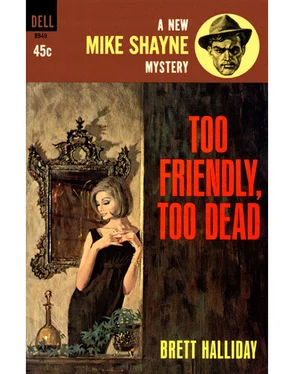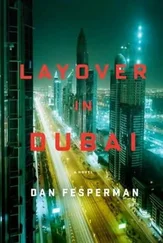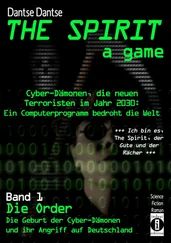Dan Fesperman - The Double Game
Здесь есть возможность читать онлайн «Dan Fesperman - The Double Game» весь текст электронной книги совершенно бесплатно (целиком полную версию без сокращений). В некоторых случаях можно слушать аудио, скачать через торрент в формате fb2 и присутствует краткое содержание. Жанр: Шпионский детектив, на английском языке. Описание произведения, (предисловие) а так же отзывы посетителей доступны на портале библиотеки ЛибКат.
- Название:The Double Game
- Автор:
- Жанр:
- Год:неизвестен
- ISBN:нет данных
- Рейтинг книги:3 / 5. Голосов: 1
-
Избранное:Добавить в избранное
- Отзывы:
-
Ваша оценка:
- 60
- 1
- 2
- 3
- 4
- 5
The Double Game: краткое содержание, описание и аннотация
Предлагаем к чтению аннотацию, описание, краткое содержание или предисловие (зависит от того, что написал сам автор книги «The Double Game»). Если вы не нашли необходимую информацию о книге — напишите в комментариях, мы постараемся отыскать её.
The Double Game — читать онлайн бесплатно полную книгу (весь текст) целиком
Ниже представлен текст книги, разбитый по страницам. Система сохранения места последней прочитанной страницы, позволяет с удобством читать онлайн бесплатно книгу «The Double Game», без необходимости каждый раз заново искать на чём Вы остановились. Поставьте закладку, и сможете в любой момент перейти на страницу, на которой закончили чтение.
Интервал:
Закладка:
“You’re very good at this, Mr. Laszlo.”
Laszlo took the compliment in stride, then clicked to the photos. The first was a shot of Ron Curtin, mullet and all. The second was his apparent new ally, the old KGB man whom I knew only by his nickname of Hammerhead.
“You know them?” he asked.
“Somewhat. And they’re not friends, in case they come asking for me again. When were they here?”
“Five days ago. One came in the morning, the other in late afternoon.”
So, not only had they been following me, at times they’d been a step ahead of me.
“Thanks,” I said. “You’ve been a huge help.”
He waved away the praise.
“I will erase these now. I kept them for you to see, but I do not wish to keep them any longer.”
“Understandable. You said you also know about Lothar Heinemann. I was wondering, though, if you’d ever come across his book. It would be in the form of a galley from a small press in Frankfurt. An Advance Reader Edition, I believe they call them now.”
“Lothar is an author?”
“This would’ve been years ago. Early to mid-seventies.”
Laszlo shook his head.
“I only know him as a collector, a procurer, and quite an outstanding one. He has a nose for these things. I was not aware he was ever a writer. This book, it would be of great value?”
“Not to most people. But it would be to me.”
I handed him one of my Ealing Wharton business cards. I considered scribbling the number for my new cell phone, then thought better of it.
“Shoot me an email if you spot it.”
“Of course.”
Laszlo seemed relieved to be back on the more familiar ground of bookselling. It reminded me of the parcel, and I put it on the table.
“How did you end up with this?” I asked.
His face darkened. He reached for his cigarette.
“Someone dropped it through my mail slot last Sunday. I found it early Monday. A small note was attached saying to hold it for you. There was no name, no address, no number. I didn’t know if you would be here in days or months. Or ever. Then, when all those men came calling, asking about you, well, I didn’t know what to think. Do you know what is inside?”
“A book, if it’s like the others. Probably with a message. Should I open it now?”
Laszlo waved away the idea.
“I think my involvement has gone as far as I would like. In fact…” He checked his watch. “Nothing personally against you, of course. But I should return to my store.”
He rose from his chair, as if worried I might open the package anyway. I stood, too. In parting, Laszlo offered another handshake. I watched through the plate glass as he emerged outside. He peered up and down the street before setting out for his store.
Laszlo’s caution was contagious. I found myself scanning the cafe for Szondi’s thug before I opened the parcel, and I held the package beneath the marble table as I tore open the butcher paper. As expected, there was a book inside. It was marked in two places.
The title, Night of the Short Knives, was pretty obscure nowadays, a 1964 novel about spies in the corridors of NATO military headquarters. The author, J. Burke Wilkinson, was quite familiar to me. He had come to our house in Vienna with his wife, Franny, for a small dinner party, probably around seventy-one, when I would have been fifteen and my father in his late thirties.
Wilkinson, who’d served earlier in the State Department, was twenty years older than Dad, but it was easy to see why they’d hit it off. They were the product of the same schools, the same circles. They even spoke the same form of expat English, an erudite blend of British and American slang.
Wilkinson was a wonderful raconteur, with great material. He’d been a schoolboy classmate of spymaster Richard Helms, and a Cambridge contemporary of Kim Philby’s. Later in Paris he knew Hemingway, Waugh, and Gertrude Stein. In addition to his novels, he’d written a biography of the spy novelist Erskine Childers. It was from Wilkinson that I learned the extraordinary news that Childers, a late convert to Irish nationalism, had himself been hanged as a spy.
That long-ago evening had made quite an impression on me, and as I read the marked passages, Wilkinson’s words rose to me in the gentlemanly cadences of his dinner table conversation. It felt as if he was sitting next to me, dressed in pinstripes and holding a glass of Dubonnet, which helped turn his prose into a personal warning of clear and present danger:
In novels about spies everyone watches everyone else all of the time. The man lighting a cigarette at the next table is always something more than he appears to be. No luggage ever remains unsearched. The car behind the car knows its distance and keeps it. Thus the dangerous moment is the time when nobody is watching, for that means the other side knows exactly what you are doing and doesn’t need to search and follow. Then is the time to beware.
I paused to again look around the cafe. No one was paying me the least bit of attention, which of course I now took as a bad sign. I wondered if my handler was also beginning to feel the heat, wherever he was.
The page for the next passage was marked by a business card for a local laundry on Kiraly Street, with the words “3 p.m. today” written at the top. The marked paragraphs of the book described an operative walking into a laundry to ask the attendant if a shirt could be cleaned and pressed within two days. The attendant said yes, then gave the operative a yellow slip of paper, which carried the operative’s marching orders.
So there was my schedule for the afternoon-a trip to the laundry at three, followed by a visit to the Szondi’s house on Corvin Square. From what Laszlo had told me, I was now expecting Bela Szondi to blow me off, no matter how faithful a customer my father had once been. I couldn’t say that I’d blame him, seeing as how the last bookseller I’d sought help from now lay dead in Prague.
With those thoughts in mind, I surveyed the cafe’s customers a final time before leaving. None was a likely suspect for a tail, and none left the cafe when I did.
According to Mr. J. Burke Wilkinson, it was time to beware.
30
By shortly after three o’ clock. I had the leverage I needed to confront Bela Szondi, thanks to my transaction at the laundry. The attendant, a man in his sixties with the droopy eyes of a bloodhound, took my request in stride, which made me suspect he had done this before. I handed him a dirty shirt, figuring I’d never see it again, then asked pointedly-bad tradecraft, probably-if it could be cleaned and pressed within two days.
“Of course,” he replied, not batting an eye. “The shirt you brought last week is ready.” He handed me a shirt box, which I carried away like a satisfied customer. I didn’t open it until I was back at my room.
Inside were three pages of a CIA report from December 1983, written by the
Vienna chief of station, Stu Henson, yet another figure from the Nethercutt funeral. The first page, the report’s cover sheet, explained that this was an assessment of top-level government collaborators and informants in Budapest. Also included were the report’s seventh and eighth pages, which described the activities of Ferenc and Bela Szondi over a twenty-year span. To me the info was trivial-unfamiliar contacts, small-bore episodes. But to the Szondis and their victims it would be explosive reading. With Hungary’s security archives sanitized, this was the last available proof of their duplicity.
To my surprise, the pages were originals, not copies. This suggested that some sort of deal had been arranged between my handler and the Szondis, with me as the middleman. Presumably my handler wanted information in return. The question was how to get what I wanted without running up against their enforcers.
Читать дальшеИнтервал:
Закладка:
Похожие книги на «The Double Game»
Представляем Вашему вниманию похожие книги на «The Double Game» списком для выбора. Мы отобрали схожую по названию и смыслу литературу в надежде предоставить читателям больше вариантов отыскать новые, интересные, ещё непрочитанные произведения.
Обсуждение, отзывы о книге «The Double Game» и просто собственные мнения читателей. Оставьте ваши комментарии, напишите, что Вы думаете о произведении, его смысле или главных героях. Укажите что конкретно понравилось, а что нет, и почему Вы так считаете.












